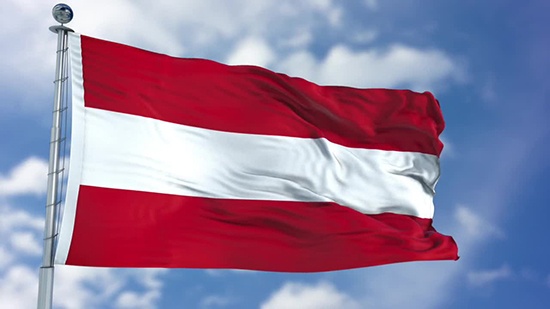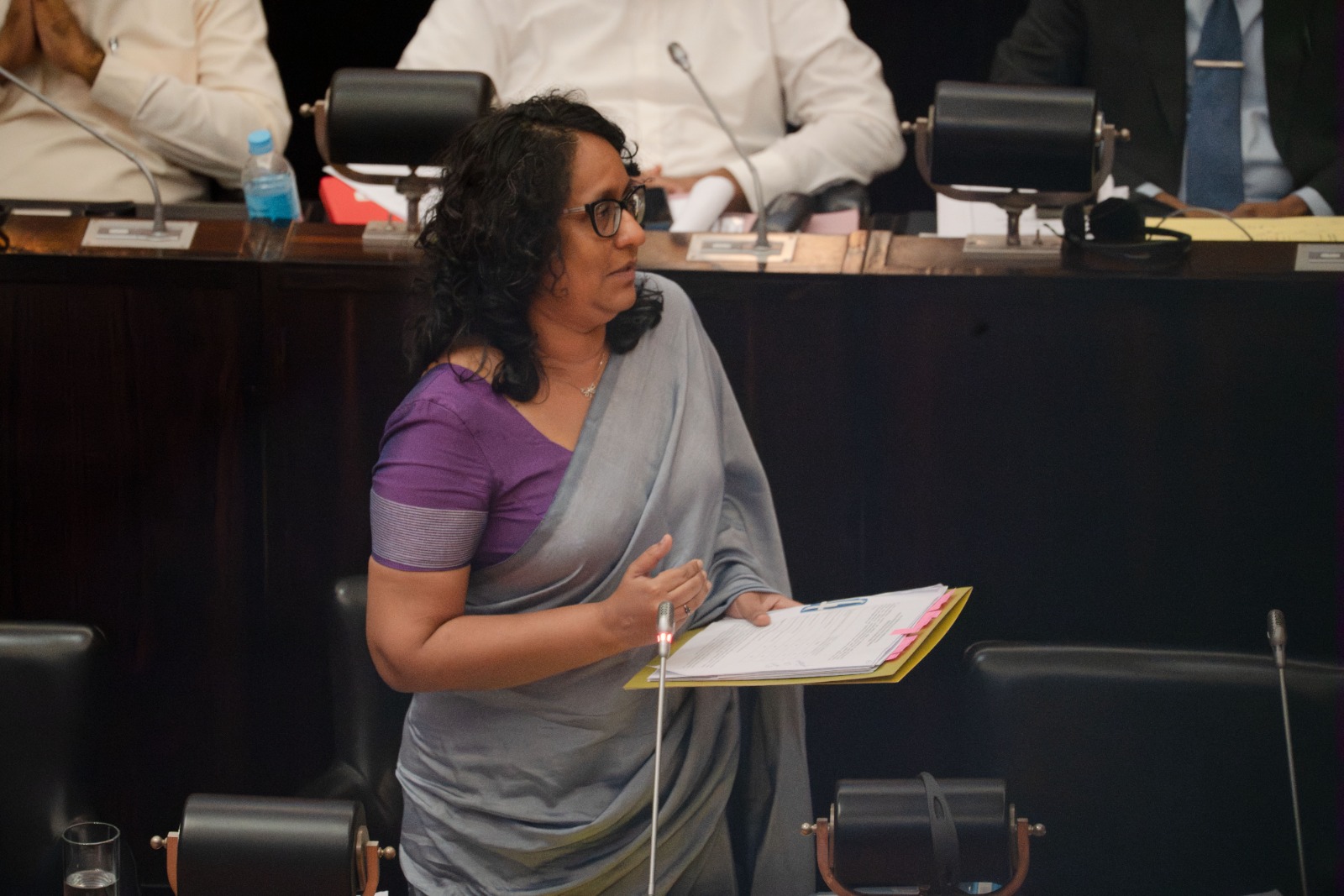News
Austria adopts anti-terror package, ‘preventive detention’ on hold

Following 2 Nov. attack:
In the wake of recent attack in Vienna that claimed the lives of four persons, Austria has adopted a security package to deal with terrorism. Austria made initial announcement a week after the Nov 2 attack blamed on a person described as an Islamist.
According to Austrian media, the government presented the package on Wednesday, Dec 16. In terms of the new package, the symbol law has been amended so that symbols of the right-wing extremist Identitarian Movement and those of some Islamist organizations could be banned; the media quoted Interior Minister Karl Nehammer as having said. The media also attributed stepped up electronic surveillance to Interior Minister Karl Nehammer and Justice Minister Alma Zadic.
However, the government refrained from adopting what it called preventive detention as part of overall security reforms for the time being.
The anti-terror package consists of following measures:
· Creation of a new criminal offense: The central component of the federal government’s new anti-terrorist package is the creation of a separate criminal offense to combat political Islam. The new paragraph 247b “Religiously motivated extremist association” in the Criminal Code is directed against organizations that fight the democratic constitutional order and want to replace it with a religiously based social and state order (such as the Sharia). According to the Criminal Code, anyone who establishes such an association, is a leader in such an association or otherwise participates in or supports it can now be punished.
Religiously motivated political extremism is becoming an aggravating factor under criminal law: A new aggravation factor for religiously motivated extremist motives is also being introduced. This should make it possible to take effective action against new forms of extremism.
· Radical mosques will be closed: Changes in the Islamic Law will create a new legal basis for closing radical mosques more quickly and easily. Specifically, in the future, the Office of Cultural Affairs should react much faster – and in particularly serious cases even without being asked to stop – and close mosques.
· Introduction of an imams’ directory: mosques and imams must be listed in a new directory. This directory will also include foreign imams and enables a transparent overview of which imam is preaching in which mosque, according to Integration Minister Susanne Raab (ÖVP). In this way, effective action can be taken against mosques that provide a platform for hate preachers from abroad. Sanctions are also planned for non-compliance.
· Stricter foreign financing ban: The foreign financing ban on mosques (Islam Law 2015) is now being tightened. In future, mosque institutions and the associations behind the mosques will be legally obliged to submit all financial documents. Here too, sanctions are planned for non-compliance.
· Improved data exchange: In addition, appropriate legal bases are created in order to improve the data and information exchange between the security authorities and the cultural office to implement these measures.
Latest News
Advisory for Severe Lightning for the Western and Sabaragamuwa provinces and Galle and Matara districts

Advisory for Severe Lightning
Issued by the Natural Hazards Early Warning Centre at 12.00 noon 07 February 2026 valid for the period until 11.00 p.m. 07 February 2026
Thundershowers accompanied with severe lightning are likely to occur at some places in the Western and Sabaragamuwa province and in Galle and Matara districts.
There may be temporary localized strong winds during thundershowers.
The general public is kindly requested to take adequate precautions to minimize damages caused by lightning activity.
ACTION REQUIRED:
The Department of Meteorology advises that people should:
Seek shelter, preferably indoors and never under trees.
Avoid open areas such as paddy fields, tea plantations and open water bodies during thunderstorms.
Avoid using wired telephones and connected electric appliances during thunderstorms.
Avoid using open vehicles, such as bicycles, tractors and boats etc.
Beware of fallen trees and power lines.
For emergency assistance contact the local disaster management authorities.
News
INS GHARIAL departs island

The Indian Naval Ship (INS) GHARIAL which made a port call in Colombo, departed the island on 06 Feb 26.
The Sri Lanka Navy bade a customary farewell to the departing ship at the Port of Colombo, following naval traditions.
During the ship’s port call, the crew took a sightseeing tour of key attractions in Colombo.
The visit also featured the handover of ten temporary Bailey Bridges, which were brought by INS GHARIAL, in coordination with the High Commission of India in Sri Lanka.
News
Stop the collection of funds from parents at school level for Smart Boards — PM

Prime Minister Dr. Harini Amarasuriya stated that the Ministry of Education has already commenced the distribution of Smart Boards required for the new education reforms, and that the collection of funds from parents at school level for this purpose must be stopped immediately. She further emphasized that no decision has been taken to curtail free education or to close the Jayewardenepura Faculty of Dental Sciences.
The Prime Minister made these remarks in response to a question raised in Parliament on Thursday [05th February] by the Leader of the Opposition, Sajith Premadasa.
Elaborating further, the Prime Minister stated,
“Although the Leader of the Opposition has not traditionally upheld free education as a policy, I appreciate your stance on the matter at this juncture. However, I urge that questions should not be raised based on social media content or unverified rumours in Parliament. No decision has been taken to curtail free education or to close the Jayawardenepura Faculty of Dental Sciences. The Medical Faculty of the Wickramarachchi University of Indigenous Medicine had commenced operations without regulatory approval and had introduced course work, resulting in students being placed in a vulnerable situation. Necessary action is currently being taken based on the recommendations of a report submitted by an expert committee appointed to examine the issue. This this is not a political decision, but one guided by expert opinion”.
“Arrangements are underway to distribute the required Smart Boards to schools during this year, and there is no need to collect funds from parents for this purpose. If any such collections are taking place, they must be stopped immediately. The Secretary to the Ministry of Education has already issued a directive instructing schools not to collect funds from parents”.
“The subject Information Technology will not be taught as a separate subject for Grades 1 to 5. However, recognizing the need to prepare students for a globally advancing technological world, discussions have been initiated based on expert advice on how to provide age-appropriate technological awareness to students. Decisions will be made after carefully considering child protection concerns and expert recommendations. The curriculum-related decisions will not be made politically, but by subject experts.
Based on the requests made by the universities and higher education institutions recruitment for essential academic vacancies is currently being carried out under the Cabinet approval. Although thirty years have passed since the establishment of the teacher service, further measures are required to enhance its quality. Existing issues relating to teacher promotions, considering the practical difficulties in evaluation processes and non-compliance with service minute provisions are being addressed alongside other challenges. The government is presently focused on formulating a systematic plan to ensure quality education.”
Responding to a question raised by the Member of Parliament Kader Mastan, the Prime Minister stated,
“Several programmes have been introduced based on government policy decisions to fulfill the basic needs of schoolchildren. These include the provision of school textbooks, uniforms, and the “Suraksha” health insurance scheme. Additionally, voucher schemes have been introduced to support the purchase of sanitary products for girls in Grades 6 to 13. Midday meals are also being provided for primary school students, and financial assistance is extended to students who pass the Grade 5 Scholarship Examination but do not receive bursaries. The Ministry of Education is in the process of gathering further information with the intention of expanding these programmes”.
The Prime Minister also announced that the 2025 G.C.E. Ordinary Level Examination is scheduled to be held from February 17 to 26. Although this period coincides with the observance of Ramadan, relevant authorities have confirmed that it will not pose an obstacle to the conduct of the examination. Furthermore, it has been decided to hold the Grade 5 Scholarship Examination and the G.C.E. Advanced Level Examination before August each year, and the G.C.E. Ordinary Level Examination in December. From 2026 onwards, efforts will be made to conduct examinations in accordance with this revised annual examination calendar.
[Prime Minister’s Media Division]
-

 Business5 days ago
Business5 days agoSLIM-Kantar People’s Awards 2026 to recognise Sri Lanka’s most trusted brands and personalities
-

 Business20 hours ago
Business20 hours agoZone24x7 enters 2026 with strong momentum, reinforcing its role as an enterprise AI and automation partner
-

 Business7 days ago
Business7 days agoAltair issues over 100+ title deeds post ownership change
-

 Business7 days ago
Business7 days agoSri Lanka opens first country pavilion at London exhibition
-

 Business6 days ago
Business6 days agoAll set for Global Synergy Awards 2026 at Waters Edge
-

 Business5 days ago
Business5 days agoAPI-first card issuing and processing platform for Pan Asia Bank
-

 Business7 days ago
Business7 days agoESOFT UNI Kandy leads the charge in promoting rugby among private universities
-

 Editorial3 days ago
Editorial3 days agoAll’s not well that ends well?













